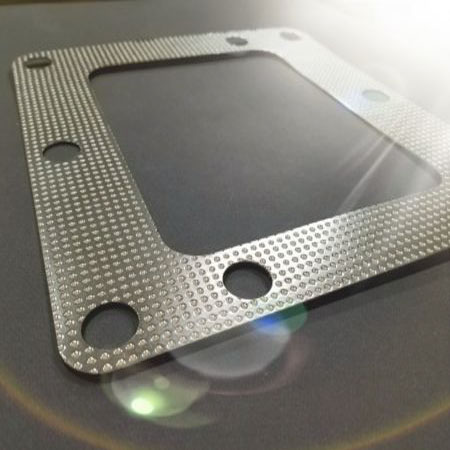Selecting your gasket material
When it comes to selecting your gasket material, if you aren’t somewhat familiar with what is out in the market and its uses, there is a good chance you are going to be slightly overwhelmed. Fiber, rubber, graphite, MLS, cork, composites, foam, SLS, RCM, HTA …the list seems to go on and on. With some of these materials, you only have a couple of choices to make due to the complexity of the material. With others, selecting the type is only the beginning.Composites are one of these materials. Here at Metal Tech Industries, within our four product families of standard items alone, we have 22 individual materials.

When it comes to selecting your gasket material, if you aren’t somewhat familiar with what is out in the market and its uses, there is a good chance you are going to be slightly overwhelmed. Fiber, rubber, graphite, MLS, cork, composites, foam, SLS, RCM, HTA …the list seems to go on and on. With some of these materials, you only have a couple of choices to make due to the complexity of the material. With others, selecting the type is only the beginning.Composites are one of these materials. Here at Metal Tech Industries, within our four product families of standard items alone, we have 22 individual materials.

For all of you gasket aficionados out there, you could take one look at our catalog and zero in on what you need. For those of you that are still becoming familiar with gaskets in general or specifically composites, you probably wouldn’t even know where to start.
One of the things you’ll see in our catalog is materials with a stainless steel core. You may be wondering what that means or when you would want to use one of these materials. Keep on reading to see the reasons why.One of the things you’ll see in our catalog is materials with a stainless steel core. You may be wondering what that means or when you would want to use one of these materials. Keep on reading to see the reasons why.
Why Stainless Steel Core?
1. Corrosion is the primary reason.
Saltwater is an application where a carbon steel core will rust out. Diesel exhaust systems are also corrosive environments with the urea-based fluid present. Carbon steel core gaskets may rust under these conditions while a stainless steel core will withstand it without degrading.
2. The market may require it.
Today, most exhaust systems are stainless steel for long life. Many OEMs demand that their gaskets must also be stainless steel. (MTI can provide our laminates with a stainless steel core to meet this requirement. Our HT 400-SS and HT 959-SS are commonly used today.)
3. High-temperature applications.
Stainless steel maintains its strength and integrity to higher temperature levels than carbon steel. For high-temperature gasket applications, a stainless steel core must be considered.
Talk To An Expert
Don’t let the thought of selecting a composite material intimidate you. Yes, there are a lot of options. The good news is, whether you need a stainless steel core or not, you don’t need to be an expert. You just need to know the requirements of your application, and your trusted gasket material supplier will be able to make some recommendations.
More good news is that, although the stainless steel core is tougher than the carbon core, the products can still be fabricated with the same methods with little adjustment. There may be some increased tool wear, but the same cutting tools/methods can be used.
Are you familiar with stainless steel core composite materials? If you are interested in subscribing to Sealed-In’s blog posts, email sales@mtigasket.com.









